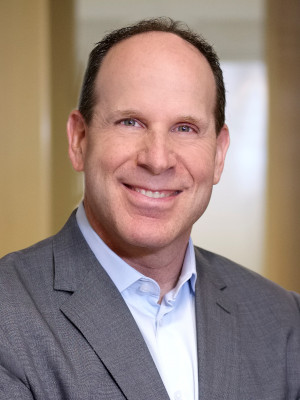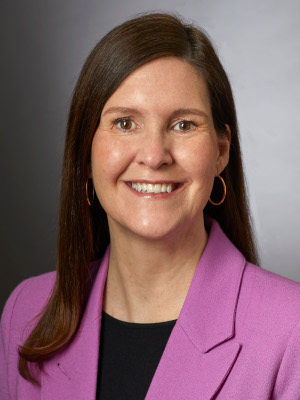This article is part of our October special report on managing enterprising families and family offices across the generations. To see all the articles, click here.
Imagine an advisor at a multi-family office who has worked with the head of a family business for years. They have a good rapport. The business is worth millions.
At some point, the advisor casually cautions the matriarch or patriarch not to talk too much to the children about the generous inheritances they’ll likely receive one day—better to emphasize the hard work, risks and rewards necessary to make it in life. The children become self-reliant, and communication gaps naturally develop between them and the advisor.

The next generation begins to think of the advisor as belonging to their parents, not them. And—whoosh!—there goes a large chunk of fees out the window for the advisor left behind as the children go their own way.
“If advisors aren’t mindful of building relationships with the next generation, then there is a strong possibility that they may get displaced by new advisors,” says Sloan Levett, partner and practice lead of the family office group at Fuller Landau in Toronto.
Assorted studies bear this out. One report from Capgemini that grabbed headlines earlier this year found that 81 per cent of next-generation investors surveyed said they planned to switch from their parent’s wealth management firm within a year or two after receiving their inheritance. The reasons given range from a lack of services on preferred digital channels to a lack of alternative investments being offered and inadequate value-added services.
Meanwhile, a survey issued in May by UBS found that 83 per cent of widows faced difficulties in taking control of their household wealth.
“Like those who inherited after a parent’s death, many widowed women did not have an established wealth transfer plan with their partner, and one in four said they did not know where all their partner’s wealth was before his passing,” UBS reported in a summary of the study.
What can advisors do?
Family offices, of course, are generally about wealth preservation for the whole family. Yet, family office advisors say they are well aware of the changing priorities of the next generation, and that grown children must be treated as more than just an appendage of the parents’ needs. That is, if advisors hope to keep the family as clients.
The difficulty, of course, is in appeasing everyone. While the next generation typically leans toward growth, parents are usually focused on maintaining the wealth they worked to achieve. It becomes a “balancing act between managing those expectations,” Levett says.
“For the most part, our support is around maintaining, protecting and growing at a bit of a slower pace than I think the next generation ideally would want to do,” Levett says. “And it’s tricky because the first generation is generally the one that built it [the family wealth]. So, they appreciate the risk, the sacrifice and the hard work. The next generation, if they weren’t part of the build, might take it for granted.”
Some advisors looking to attract younger-generation clients may sell themselves as offering newer digital services or investment strategies such as impact investing or alternative assets.

Even if those might not be to the family patriarch or matriarch’s tastes, “that doesn’t preclude the other members of the family from having their own portfolios reflect their personal preferences,” says Bill Healy, a Montreal-based family office board member, strategic advisor and investment committee member. He also sits on Canadian Family Offices’ editorial advisory board.
“The whole family office concept is geared toward addressing the needs of the different members of the family,” Healy adds. “It starts from the get-go in terms of presenting very conceptually what are the advantages of dealing with a multi-family office.”
This should include having the next generation attend family meetings early on and making sure they are aware of the family’s finances at a reasonably young age, advisors say. The discussion doesn’t even have to be about numbers. It can be more of a review of the family plan.
Yet, over time, Levett says, “you might get a little bit of dilution because one of the kids may decide to go their own way, just because they have different interests. They’ve already built a relationship with an advisor that they think they will be more aligned with.”
New partners and spouses might also be introduced to the family. Fissures may occur, maybe not to the melodramatic lengths of TV’s Succession, but they can easily spread.
Levett noted that further training, such as the Family Enterprise Advisor (FEA) designation, can help—and can be another selling point. The professional FEA training program taps into “the soft skills needed to support a family and helps them to make decisions around family governance, communication and decision making. It was an area I felt I needed the skill set to support our clients,” Levett says.

Another common option is for the family to hive off small, separate investment accounts, particularly for the next generation, to give them experience handling their own portfolios.
In any case, advisors should understand the degree in which the adult children want to be involved.
It can create a different function for the advisor, “if an individual really wants everything ‘taken care of,’ and they spend minimal time on the investment portfolio,” says Susan K. Bell, president and chief executive officer of Bell Kearns & Associates in Toronto.
“Or are there adult children who are very interested and passionate about the topic and perhaps make a career at their family office? Or they dedicate a significant amount of their time on the investment portfolio, want to be more involved and want to spend more time meeting with managers. I think identifying that in the next generation is important,” Bell says.
Yet, even if the next gen demonstrates a desire to start afresh with new advice, it’s the advisors’ extensive knowledge of the family that can actually be their main selling point.
Bell says, “I often get asked, ‘What do you think my father would have done in this scenario? … [or] ‘What would my mother have done in this scenario?’”
For some, having that personable relationship may be the most important service of all.
Guy Dixon began his career at Dow Jones Newswires in New York before a long career at the Globe and Mail covering financial markets, business news, the arts and other topics. He has written for the CBC and The Walrus among other publications and is pursuing media-art projects.
The Canadian Family Offices newsletter comes out on Sundays and Wednesdays. If you are interested in stories about Canadian enterprising families, family offices and the professionals who work with them, but like your content aggregated, you can sign up for our free newsletter here.
Please visit here to see information about our standards of journalistic excellence.




